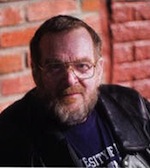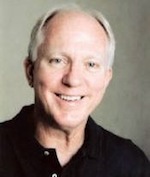If it’s true that professional boxing now has 68 world title holders in 17 weight classes, as The Wall Street Journal recently reported, then it’s not surprising that AT THE FIGHTS: American Writers on Boxing, a new anthology from The Library of America, reads like an elegy for the fight game.
!['AT THE FIGHTS: American Writers on Boxing,' edited by George Kimball and John Schulian [The Library of America, 2011].](http://www.artsjournal.com/herman/assets_c/2011/03/AT THE FIGHTS cover-thumb-153x195-19362.jpg) More than five dozen world champs are too many to take seriously. “It’s harder to find great boxing writing these days simply because it’s harder to find great fighters and great fights,” John Schulian, who co-edited the anthology with George Kimball, says in a downloadable interview posted online by the publisher. Which helps to explain why so few of the selections in their 517-page anthology date from recent times.
More than five dozen world champs are too many to take seriously. “It’s harder to find great boxing writing these days simply because it’s harder to find great fighters and great fights,” John Schulian, who co-edited the anthology with George Kimball, says in a downloadable interview posted online by the publisher. Which helps to explain why so few of the selections in their 517-page anthology date from recent times.
This is hardly a demerit … unless you’d rather not read H.L. Mencken, Sherwood Anderson, Richard Wright, James Baldwin, and Edward Hoagland — to name five literary writers included in this anthology who are not usually associated with boxing — or unless you’d prefer to ignore the class of the field that decades ago established boxing reportage as a literary specialty: A.J. Liebling, W.C. Heinz, Budd Schulberg, Jimmy Cannon, Pete Hamill, George Plimpton, Gay Talese, Pete Dexter, and too many others to name.
It turns out that great boxing writing was not always, or only, about great fights and fighters. Take Paul Gallico’s “Pity the Poor Giant,” about Primo Carnera, an “unfortunate pituitary case, who might have been Angoulaffre, or Balan, or Fierabras, Gogmagog, or Gargantua himself.” Carnera was, in fact, just “a poor simple-minded peasant” owned by American mobsters and discarded “when his usefulness as a meal ticket” ran out. Or consider Schulian’s own “Nowhere to Run,” which demonstrates that a great boxing story may be precisely the opposite of a tale about a great fighter. His subject — a former welterweight champ, “the one the fight crowd used to call Honey Boy” — is totally forgotten, a “lost soul dozing in the corner” of a cheap hotel lobby.
He lives in a world that skirts reality, a world filled with panhandling buddies and visions of old movies, a world where no one can hurt him. Late at night, when he is alone in the lobby, alone with his jumbled thoughts, he will rise from the couch where he sleeps and slowly walk toward the full-length mirror. He will raise his fists and bend at the knees and, suddenly, he will be Johnny Bratton, welterweight champion, once again. Never mind that his hair is more gray than black or that he is an easy fifty pounds over his fighting prime. You can’t take the past away from him.
Of course, any anthology of this kind does require stories about top fighters and top fights: Jack Dempsey, Gene Tunney, Joe Louis, Archie Moore, Rock Marciano, George Foreman, Joe Frazier, Muhammad Ali, and so on. AT THE FIGHTS has plenty of those, though not necessarily the kind you might expect.
For instance, there’s John Lardner’s “Down Great Purple Valley,” about the turn-of-the-20th-century middleweight champ Stanley Ketchel, “perhaps the best fist fighter of his weight in history,” as well as a “crude, brawling, low-living, wild-eyed, sentimental, dissipated, almost illiterate hobo.” It begins with a lede that’s become a journalistic legend:
Stanley Ketchel was twenty-four years old when he was fatally shot in the back by the common-law husband of the lady who was cooking his breakfast.
As the editors point out, Red Smith (who is also included in the anthology) called it “the greatest novel ever written in one sentence.” But let’s let Mark Kram’s “Lawdy, Lawdy, He’s Great,” about the 1975 Ali-Frazier “Thrilla in Manila,” stand in for all the greats with its portrait of Ali in the immediate aftermath of his victory.
The maddest of existentialists, one of the great surrealists of our time, the king of all he sees, Ali had never before appeared so vulnerable and fragile, so pitiably unmajestic, so far from the universe he claims as his alone. He could barely hold his fork, and he lifted the food slowly up to his bottom lip, which had been scraped pink. The skin on his face was dull and blotched, his eyes drained of that familiar childlike wonder. His right eye was a deep purple, beginning to close, a dark blind being drawn against a harsh light. He chewed his food painfully, and then he suddenly moved away from the candles as if he had become aware of the mask he was wearing, as if an inner voice were laughing at him. He shrugged and the moment was gone.
George Kimball
 Kimball, who I suspect wrote the concise intros for the selections[see footnote], says in the online interview (which, by the way, would have been worth including in the anthology itself), that he and Schulian initially considered 22 pieces on Ali, “every one of them a gem.” They finally winnowed the pack down to six, “the best of the best,” choosing them not only because of their quality, he says, but because they “provided a diffuse cross-section that accurately represents and hopefully explains the almost mystical appeal of the most fascinating and captivating individual I know.”
Kimball, who I suspect wrote the concise intros for the selections[see footnote], says in the online interview (which, by the way, would have been worth including in the anthology itself), that he and Schulian initially considered 22 pieces on Ali, “every one of them a gem.” They finally winnowed the pack down to six, “the best of the best,” choosing them not only because of their quality, he says, but because they “provided a diffuse cross-section that accurately represents and hopefully explains the almost mystical appeal of the most fascinating and captivating individual I know.”
John Schulian
 If I had to pick a favorite piece, however, it would not be any of the ones about Ali. I would choose Joe Flaherty’s “Amen to Sonny,” written when Sonny Liston died, in 1971. Here’s a lengthy excerpt. Please indulge me. You won’t be sorry.
If I had to pick a favorite piece, however, it would not be any of the ones about Ali. I would choose Joe Flaherty’s “Amen to Sonny,” written when Sonny Liston died, in 1971. Here’s a lengthy excerpt. Please indulge me. You won’t be sorry.
Will no one say amen? After reading and listening to the New York press, it seems that Charles “Sonny” Liston’s soul will be politely consigned to damnation.
Milton Gross of the Post, the Eleanor Roosevelt of the sports pages, said in last Wednesday’s column that he’d decided not to call his boy Floyd Patterson with the news of Sonny’s death till the following day, knowing that Floyd would say: “Gee, that’s terrible. I’m sorry.” Then Miltie hypothetically buried Floyd (in St. Peter’s Basilica, one presumes) and commented: “I know Liston wouldn’t have said the same.” So much for a seance in a wet afternoon daily.
Another Patterson acolyte of old, Howard Cosell, appeared on ABC’s six o’clock news and, in his best Battle of Britain tones, told us that it would be “unethical and unprincipled” for him to praise Sonny, concluding that there would be “no requiem for this heavyweight.” This, of course, is the same Cosell who “ethically” gloated over Pete Rozelle’s muscling Joe Namath during the Bachelors III affair. Sonny would have understood — he always understood the smart money.
And on the late ABC news Jim Bouton, the icky iconoclast whose reporting is so giggly that — in the words of Dorothy Parker — it makes you want to “fwow up,” dismissed Liston with a cute anecdote, proceeding to interview ex-footballer-author Dave Meggyesy (Out of Their League) about the comparisons between racism in football and everyday American life and the similarities between football and the military-industrial complex, blah, blah. The interview led one to believe that the only thing out of Meggysey’s league is the English language.
But what about Floyd himself? The Daily News told us that Patterson, upon being informed of Liston’s death, exclaimed: “No, no! I had told them I would fight Liston again.” Such humanity! It would crack the vaults of heaven. Poor Sonny done went and died before Floyd could cure his psyche. The eternal truth is that even in his present condition Liston would be 8 to 5 over Patterson
Well, the reader may justifiably say that the back of the hand is the only tribute a blackguard deserves. After all, the man was busted twenty times. He was a union goon, ran with the mob, cracked heads with the same niftiness a short-order cook prepares “two over light.” True, so very true. But transgressions always are forgiven in boxing if the sinner prostrates himself in front of his better sinners — namely, promoters, managers, and boxing commissioners. But like Ali after him, Sonny was a psychic breakthrough in the sport and in the American (both black and white) mind. He was a blatant mother in a fucker’s game.
The only piece I could have done without is Norman Mailer’s overblown excerpt from The Fight, his book about the 1974 Ali-Foreman “Rumble in the Jungle,” staged in Kinshasa, Zaire. At 25 pages, it is the longest selection in the anthology — unfortunately. My other quibble is that there’s nothing to read by Ernest Hemingway and Nelson Algren. Both were fascinated by fighters, and both wrote about the fight game. But the truth is their brilliant fight pieces were works of fiction, and this is a nonfiction collection.
Bottom line? Once I opened AT THE FIGHTS I couldn’t put it down. I read the thing cover to cover, front to back, no skipping, no skimming, absolutely straight through. What other anthology of any kind of writing can I say that about?
Footnote: My suspicion was wrong. Schulian sends a message: “George and I split the intros down the middle.”




